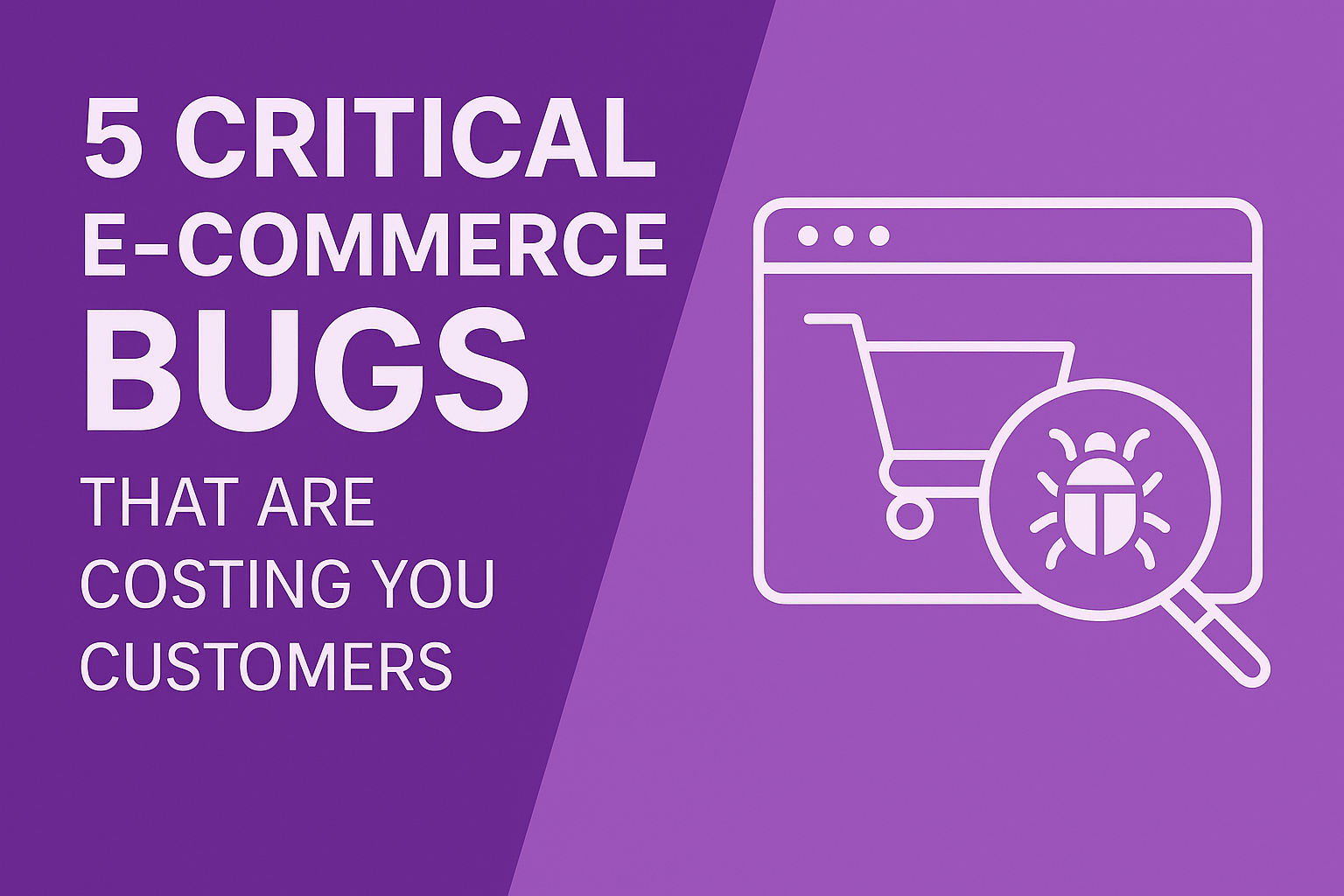Early Detection: Why Testing Is Important for Cost Control
How much more expensive is it to fix bugs after software release?
The importance of software testing becomes most apparent when comparing early detection costs versus post-release fixes. Industry research shows dramatic cost differences based on when bugs are discovered:
Cost Comparison by Development Phase:
- Requirements Phase: $1 to fix
- Design Phase: $5 to fix
- Development Phase: $10 to fix
- Testing Phase: $15 to fix
- Post-Release: $100+ to fix
Early detection during development phases can reduce bug fixing costs by 90-95% compared to post-production repairs. Understanding why testing is important for early detection includes recognizing avoided costs of emergency fixes, reduced customer support volume, and prevention of revenue loss during critical business periods.
What is a realistic ROI from early bug detection?
A company investing $50,000 in comprehensive testing might prevent $500,000 in post-release fixes, delivering 10x ROI purely from bug prevention. This excludes additional benefits like improved customer satisfaction and competitive advantage.
Professional testing services maximize early detection benefits by applying systematic approaches that identify issues before they become expensive problems.
Operational Cost Reduction
How much can software testing reduce support costs?
The importance of software testing creates immediate savings through reduced support and maintenance requirements. Companies with comprehensive testing report 40-60% reduction in support ticket volume compared to those with minimal quality assurance.
Support Cost Benefits:
- Fewer customer service interactions
- Reduced technical escalation resources
- Lower customer satisfaction recovery costs
- Decreased maintenance overhead
Tested software requires less maintenance because issues are resolved during development rather than discovered in production. Why testing is important for maintenance includes fewer emergency updates, more predictable maintenance schedules, and reduced system downtime.
Organizations typically spend 15-20% of their IT budget on support and maintenance. Comprehensive testing can reduce these costs by 30-50%, creating substantial ongoing savings that compound over time.
Revenue Protection and Business Continuity
How does software testing protect business revenue?
The importance of software testing extends to protecting ongoing revenue streams. Software failures can cause immediate revenue loss through system downtime, customer abandonment, and business disruption.
Revenue Protection Mechanisms:
- Uptime Assurance: Prevents crashes during peak business periods
- Customer Retention: Reduces churn through reliable user experiences
- Transaction Protection: Prevents lost sales from system failures
- Productivity Maintenance: Protects employee efficiency and operations
What does software downtime cost businesses?
E-commerce platforms can lose $10,000 per minute during outages. Understanding why testing is important becomes clear when $100,000 testing investments prevent millions in lost revenue from major system failures.
Customer Lifetime Value Impact:
Reliable software increases customer lifetime value by reducing churn rates. The importance of software testing includes retained revenue from customers who might otherwise switch to competitors due to poor software experiences.
Legal and Compliance Protection
The importance of software testing includes substantial protection against legal and regulatory penalties that can dwarf testing investments. Compliance failures create massive financial liabilities:
Legal Cost Prevention:
- GDPR violations: Up to 4% of annual revenue
- HIPAA violations: Average $1.5 million per incident
- PCI DSS failures: Ongoing penalties and increased fees
- Litigation costs: Attorney fees, settlements, reputation damage
What compliance risks does untested software create?
Healthcare companies avoiding HIPAA violations through proper testing save millions in fines and legal costs. Financial services preventing PCI DSS failures protect against regulatory sanctions and customer lawsuits.
Comprehensive testing creates documentation that supports legal defense when software performance becomes subject to litigation or regulatory investigation.
ROI Calculation Framework
Understanding the importance of software testing requires systematic ROI calculation considering both direct costs and avoided expenses:
Investment Costs:
- Testing tools and infrastructure
- Professional services or internal resources
- Development team time allocation
- Training and certification expenses
Savings and Benefits:
- Avoided bug fixing costs
- Reduced support and maintenance expenses
- Prevented revenue loss from failures
- Legal and compliance cost avoidance
What is typical testing ROI timeline?
Most businesses achieve positive testing ROI within 6-12 months. Why testing is important becomes evident when compounding benefits create exponential value over multi-year periods.
Example ROI Calculation:$75,000 testing investment preventing:
- $300,000 in post-release fixes
- $100,000 in lost revenue from outages
- $50,000 in reduced support costsTotal benefits: $450,000 (500% ROI within first year)
Maximizing Testing Investment Returns
How can businesses optimize their testing investments?
The importance of software testing can be maximized through strategic implementation approaches:
Cost-Effective Strategies:
- Risk-Based Testing: Focus on high-impact areas
- Early Integration: Implement testing early in development
- Automation Balance: Combine automated and manual approaches
- Professional Services: Leverage specialized expertise
Should companies build internal testing teams or outsource?
Professional QA as a Service solutions provide scalable testing capabilities without large upfront investments in tools, training, and personnel. External teams offer immediate access to advanced testing expertise and proven methodologies.
What factors determine testing ROI success?
Project complexity, industry regulations, customer impact severity, and business criticality all influence testing ROI. High-risk applications in regulated industries typically show highest returns from comprehensive testing investments.
Understanding the importance of software testing enables businesses to make informed decisions about quality investments that deliver measurable financial returns while protecting operations, customer relationships, and market position. Why testing is important becomes clear when comprehensive quality assurance transforms from cost center to profit driver through strategic implementation.
Ready to maximize your testing ROI? Professional quality assurance services provide immediate access to cost-saving expertise and methodologies that ensure superior software quality while delivering measurable business value.





